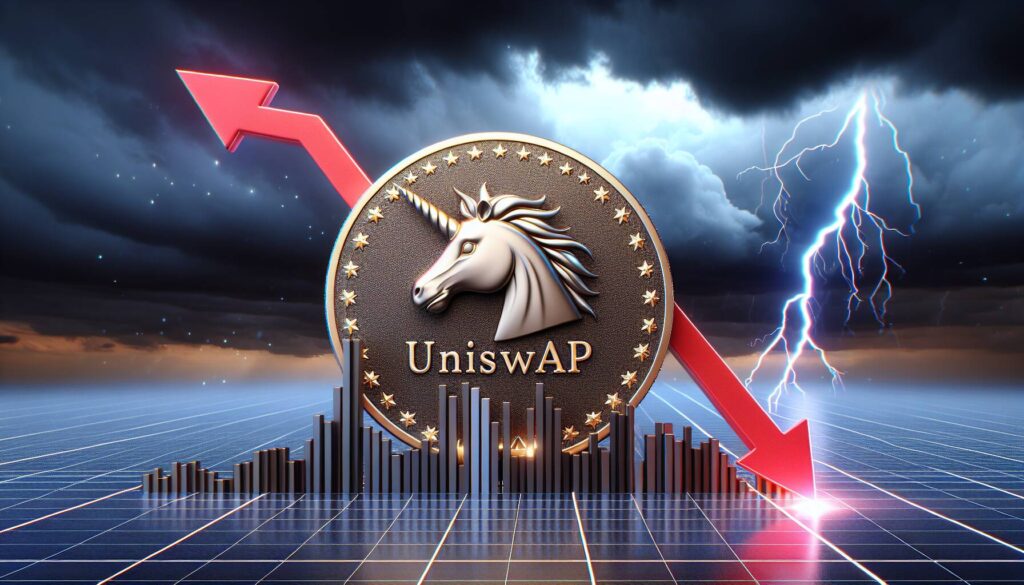In a bold move, ten major trade associations in the fintech and cryptocurrency sectors have joined forces to urge President Donald Trump to intervene in what they describe as a concerted effort by large banks to suppress innovation and limit competition in the financial landscape. This coalition, which includes influential organizations like the Blockchain Association and the Crypto Council for Innovation, expressed their concerns in a letter sent on Wednesday.
The focal point of this heated debate is JPMorgan’s recent announcement to impose fees for access to consumer banking data, a strategy that critics believe could effectively de-bank millions of Americans and hinder the growth of stablecoins such as USDC and USDT, as well as the use of self-custody wallets. The current ecosystem allows users to seamlessly transfer funds from their bank accounts to leading crypto platforms like Coinbase and Kraken via data aggregators like Plaid and MX. These services have historically operated without charging users, relying on direct access to user-permissioned data.
“Let us be clear: financial data belongs to the American people, not the banks,”
the letter emphasizes, framing the issue as a pivotal battle over financial rights and access. The trade groups argue that if large banks continue down this path, they will directly oppose the vision of making America a leading hub for financial innovation.
This call to action is particularly timely, as the deadline approaches for the administration to file a legal brief regarding the Consumer Financial Protection Bureau’s (CFPB) open banking rule, which aims to ensure that consumers can freely access their financial data and share it with third-party services. This rule, finalized in late 2024, was intended to create a more equitable playing field in the finance sector. However, it has faced pushback from banks, culminating in a lawsuit filed on the very day it was announced.
In response to JPMorgan’s controversial fee structure, Kraken’s co-CEO Arjun Sethi remarked on social media, describing it as a “calculated shift” that transforms consumer-generated data into a cost-bearing commodity. He cautioned that the industry is facing a trend of centralization that threatens to undermine the principles of decentralization that cryptocurrencies offer, warning that the future of financial autonomy depends on the actions taken today.

Impact of Big Banks on Fintech Innovation
The ongoing conflict between large banks and fintech companies has significant implications for consumers and the financial landscape.
- Call for Presidential Intervention:
Trade associations in fintech and crypto urge President Trump to address perceived threats from big banks against innovation.
- Threat of Banking Fees:
JPMorgan’s proposal to charge fees for access to consumer banking data could lead to higher costs for aggregators and consumers.
- Impact on Consumer Access:
Charging fees may de-bank millions of Americans and hinder access to vital financial services like stablecoins and self-custody wallets.
- Importance of Open Banking:
The CFPB’s open banking rule aims to provide consumers with free access to their financial data, fostering competition between banks and fintechs.
- Legal Challenges:
The rule has faced significant pushback from banks, indicating a struggle over the future of consumer financial data rights.
- Centralization vs. Decentralization:
The conflict highlights a tension between centralized banking control and decentralized financial systems like crypto.
“Financial data belongs to the American people, not the banks.” – Trade association letter.
These key points highlight the evolving dynamics in the financial sector and stress the importance of consumer rights to data access, which could ultimately shape how individuals manage their finances and interact with emerging technologies. The decisions made in these discussions could directly influence financial freedom and innovation for consumers.
Fintech and Crypto Associations Unite Against Banking Monopoly
The recent plea made by ten leading trade associations in the fintech and crypto sectors to President Donald Trump highlights a growing concern over the power dynamics shaping the financial landscape. These groups, which include significant players such as the Blockchain Association and Crypto Council for Innovation, have raised alarms regarding JPMorgan’s strategic moves that could potentially jeopardize innovation and user access to essential financial services. The insistence on charging fees for accessing consumer banking data is viewed as a maneuver that could not only undermine the principle of open banking but also threaten the financial autonomy of millions of Americans.
Competitive Advantages: By rallying against the monopolistic tendencies of big banks, these fintech and crypto associations foster a strong narrative around consumer rights and innovation in finance. Their call to the President may galvanize support from consumers wary of traditional banking practices. Furthermore, the alliances formed between these associations amplify their voice, as combined representation can significantly influence policy decisions. This coalition underlines a value proposition for users seeking alternatives to traditional banking, such as stablecoins and decentralized finance options, which advocate for user control over personal financial data.
Disadvantages: However, the public stance against banking behemoths may also alienate potential partnerships with established financial institutions that could aid in the maturation of the fintech landscape. Additionally, if these associations fail to persuade the administration, they risk appearing ineffective, which could diminish their credibility and the public’s trust in alternative financial services. The impending legal scrutiny of the Consumer Financial Protection Bureau’s (CFPB) open banking rule also adds complexity, as any negative outcome could stall the momentum these associations have gained in advocating for consumer rights.
This situation could be advantageous for those in the fintech sector who emphasize transparency and accessibility. Emerging tech startups and existing companies offering innovative solutions can leverage this moment to position themselves as champions of consumer rights. Conversely, established banks may find themselves under increased scrutiny and pressure to justify their fee structures, potentially leading to adverse public opinion. As the regulatory landscape evolves, both content creators and consumers should remain vigilant, as the ramifications of these developments will likely have lasting effects on how financial services are structured and accessed in the United States.

















